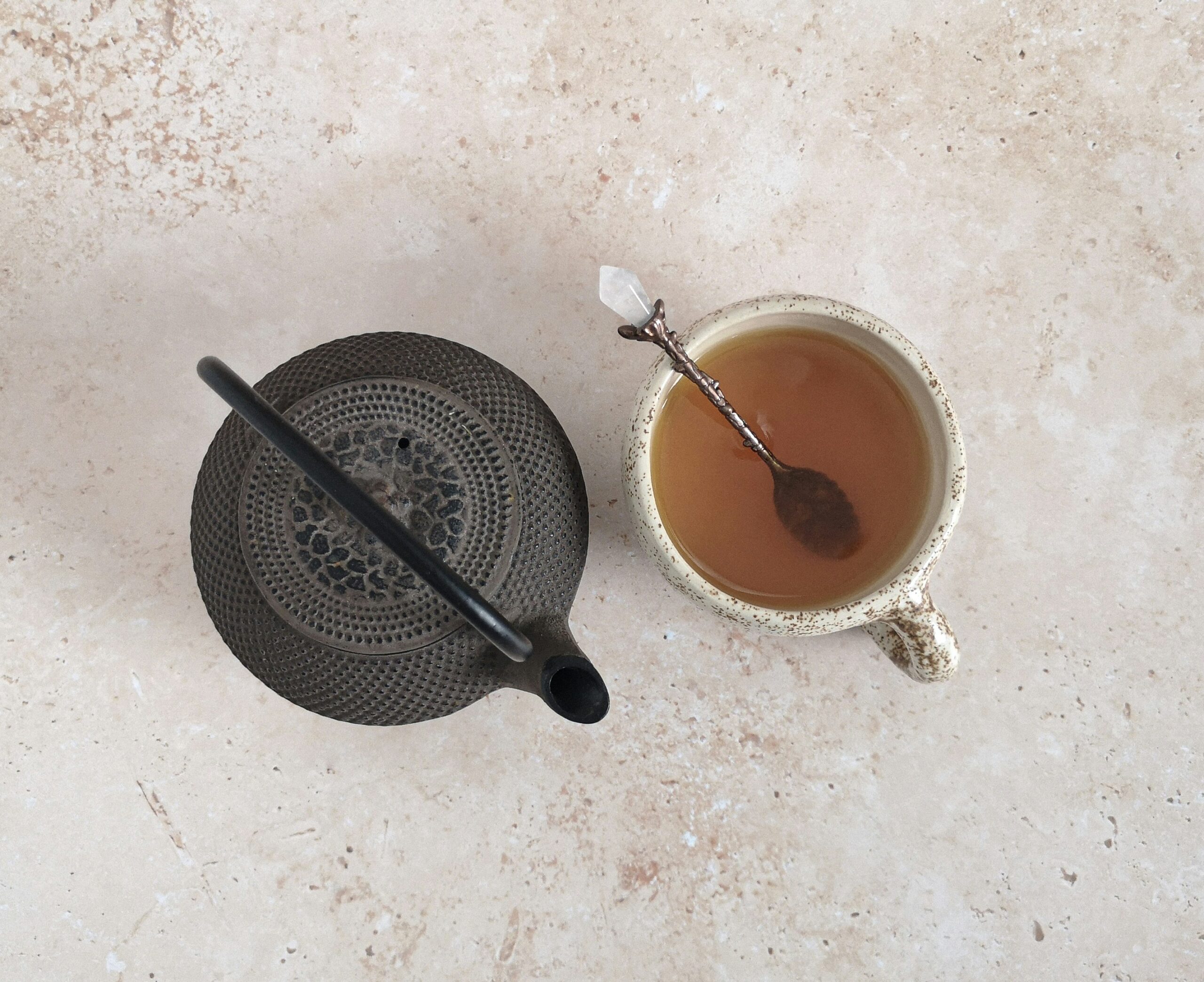
Pregnancy is a time when many women consider using natural remedies to support their health. Some herbs are safe and beneficial during pregnancy, providing relief from common symptoms like nausea and fatigue. Yet, not all herbs are suitable for expecting mothers, making it crucial to choose wisely and consult a healthcare provider.
Herbal medicine can offer a holistic approach to your pregnancy journey, complementing traditional care. Ginger and peppermint, for instance, are known for easing morning sickness. Meanwhile, raspberry leaf tea is often appreciated for its potential benefits during the later stages of pregnancy. These natural options might be appealing, but it’s important to understand their uses and any associated risks.
For a healthy pregnancy, holistic health practices should be balanced with professional advice. Always discuss any herbal remedies with your healthcare provider to ensure they’re safe for you and your baby. This blog will guide you through the best herbs for pregnancy, their benefits, and how to incorporate them safely into your routine.
Key Takeaways
- Some herbs offer specific benefits during pregnancy.
- Always consult with a healthcare provider before using herbal remedies.
- Understand the risks and appropriate preparation of herbal products.
Understanding the Basics of Pregnancy and Herbal Use
Herbal use during pregnancy can be beneficial but requires careful consideration. Some herbs support holistic health, while others may not be safe for use.
The Role of Herbs During Pregnancy
Herbs have been used for centuries as part of natural pregnancy care. They can help manage common pregnancy symptoms like nausea and can improve overall well-being. For example, ginger is commonly used to soothe morning sickness.
Besides ginger, peppermint and chamomile can aid digestion and relaxation. These herbs contribute to a holistic health approach, emphasising natural remedies. It’s essential to use herbs appropriately to avoid any adverse effects.
Some women use herbs to prepare for labour, such as red raspberry leaf, which is believed to strengthen the uterine muscles. Always consult with healthcare professionals before incorporating any herbs into your routine during this important time.
What Makes Herbs Safe for Pregnancy?
When choosing herbs during pregnancy, it’s crucial to focus on safety. Safe herbs for pregnancy are those that are supported by research and recommended by health professionals. These include options like ginger, known for its anti-nausea properties, and chamomile for its calming effects.
Herbs should be free from contaminants and sourced from reputable suppliers. It’s important to ensure they don’t interact with any medications. Avoid strong or poorly studied herbs, as their effects may not be well understood.
Consulting with a healthcare provider or a specialist in herbal medicine can help ensure the herbs you choose are safe and beneficial. Prioritising safety ensures that you and your baby remain healthy throughout the pregnancy journey.
Common Herbs and Their Pregnancy-Specific Benefits
Exploring the benefits of certain herbs can support various needs during pregnancy. From enhancing uterine health to easing nausea and promoting relaxation, these herbs offer specific advantages.
Raspberry Leaf and Uterine Health
Raspberry leaf, also known as red raspberry leaf, is appreciated for its potential to strengthen uterine muscles. Often found in pregnancy tea, it may prepare your body for labour. As a uterine tonic, it is believed to help shorten labour and reduce complications.
Typically used in the second and third trimesters, raspberry leaf is taken in the form of tea or capsules. Many women consume it daily to ease contractions. While some benefits are reported anecdotally, always consult with a healthcare provider before use.
Nettle Leaf for Vitamins and Minerals
Nettle leaf is known for its rich content of vitamins and minerals. It’s a great source of iron, calcium, and magnesium, which are vital during pregnancy. Including nettle leaf in your diet may support overall health and nutrient intake.
This herb can be consumed as a tea or in capsule form. Drinking nettle leaf tea may boost your mineral levels naturally. As it can interact with other herbs and medications, consult with a health professional before starting.
Ginger Root for Nausea and Morning Sickness
Ginger root is commonly used to alleviate nausea and morning sickness in early pregnancy. It is recognised for its digestive benefits and is often recommended as a safe remedy for queasiness.
Ginger can be consumed in various forms, like tea, candies, or capsules. Many find that ginger tea soothes their stomach and reduces the urge to vomit. It’s generally considered safe in small amounts, but always check with your doctor if you’re unsure about its use.
Chamomile: A Gentle Herb for Sleep and Relaxation
Chamomile is valued for its calming effects, often used to improve sleep and relaxation during pregnancy. Drinking chamomile tea can help ease stress and promote restful sleep without the use of medication.
This gentle herb can be prepared as a soothing tea before bedtime. While chamomile is widely regarded as safe, excessive consumption should be avoided. Make sure to talk to your healthcare provider about the appropriate amount for you.
Peppermint and Spearmint for Digestive Comfort
Peppermint and spearmint are popular choices for easing digestive discomfort during pregnancy. They can help relieve indigestion, bloating, and gas, making meals more enjoyable.
These herbs are frequently consumed as tea or used in essential oils. Drinking peppermint tea might soothe your stomach and reduce feelings of discomfort after eating. Although generally deemed safe, consult your healthcare provider before using peppermint or spearmint, especially if you experience heartburn.
Risks and Considerations for Herbal Use in Pregnancy
When using herbal remedies during pregnancy, it’s important to be aware of the potential risks. Some herbs may cause side effects or interact with medications, and certain herbs can increase the risk of miscarriage or other complications. Consulting a healthcare provider is crucial for ensuring safety.
Potential Side Effects and Interactions
Some herbal remedies can lead to adverse side effects. For example, dandelion root is often used to support digestion, but it may cause heartburn or diarrhoea in some people. Additionally, herbs like echinacea, which is commonly used to boost immunity, can potentially interact with medications you might be taking.
It’s essential to discuss any herbs you consider with a healthcare provider. This ensures that you are aware of potential interactions, especially if you are on prescription medications. While herbalism is often viewed as a natural and safe approach, it doesn’t mean it’s free from risks.
Understanding Contraindications and Miscarriage Risks
Certain herbs should be avoided during pregnancy due to their potential to affect the pregnancy adversely. Some herbs have been associated with an increased risk of miscarriage. For example, herbs that stimulate uterine contractions can be particularly dangerous.
It’s vital to understand these contraindications and consult your healthcare provider before using any new herbal remedy. They can help you assess if a specific herb may pose a risk to your pregnancy. Using herbs without guidance may inadvertently lead to complications, so professional advice is invaluable in making informed decisions about herbal use.
Nutritional Support with Herbal Supplements
Herbal supplements can offer essential nutrients during pregnancy, contributing to overall wellness. Certain herbs are rich in vitamins and minerals, while others provide additional support through antioxidant properties.
Herbs Rich in Nutrients for Pregnancy Wellness
Incorporating herbal supplements into your diet can enhance pregnancy nutrition. Herbs like garlic and ginger are known for their beneficial nutrients. Garlic is packed with antioxidants which help protect cells from damage. It can also assist with boosting immunity. Another herb to consider is raspberry leaf tea, which is a popular herbal pregnancy tea. Raspberry leaf is traditionally believed to strengthen uterine muscles and can be a good source of iron.
Nettles are another beneficial herb as they contain vitamins A, C, and K, along with calcium and iron. These nutrients are essential for maintaining a healthy pregnancy. While considering herbal supplements, it’s important to consult with a healthcare provider to ensure they are suitable for your personal health needs.
Dandelion and Cranberry for Additional Support
Dandelion and cranberry can provide unique benefits during pregnancy. Dandelion offers a rich source of vitamins A, C, and K, and is known for its gentle diuretic effect. This may help reduce swelling that often occurs during pregnancy. Additionally, dandelion may assist with liver health, which is crucial for detoxification and maintaining energy levels.
Cranberry is often recommended to support urinary tract health. It contains antioxidants that help prevent urinary infections, a common issue during pregnancy. Cranberry supplements or juice can be an easy way to incorporate these benefits into your diet. Always ensure these herbs are part of a balanced approach to pregnancy nutrition and discuss their use with your doctor.
Preparation and Usage of Herbal Products
Herbal products can be a helpful addition during pregnancy when used correctly. Knowing how to prepare and use these remedies safely is crucial to ensure the best outcomes for you and your baby.
Creating a Pregnancy Tea Blend
When crafting a pregnancy tea blend, it is essential to choose herbs known for their benefits during pregnancy. Popular choices include red raspberry leaf tea, which is thought to tone the uterus, and chamomile tea for relaxation.
To prepare your blend, combine dried leaves of your chosen herbs. For example, mix two parts red raspberry leaf with one part chamomile. Steep a tablespoon of the mixture in hot water for about ten minutes to let the flavours meld and the herbs release their beneficial properties.
Dosage and Frequency for Herbal Tea Consumption
The right dosage and frequency of herbal tea consumption during pregnancy can vary. A common recommendation is to drink one to two cups of mild herbal tea such as red raspberry leaf or chamomile per day.
Moderation is key. Too much consumption can lead to unintended side effects. Pay attention to your body’s response and adjust accordingly. Steeping time matters as well; longer steeping will make a stronger tea.
Whole Herbs vs. Supplements: Which is Better?
Deciding between whole herbs and supplements depends on your needs and preferences. Whole herbs like loose leaf teas offer natural flavours and can be a soothing ritual. Their preparation involves mindful steps that let you control the strength and ingredients.
Supplements, on the other hand, provide a convenient and consistent dosage. They can be easier if you have a busy schedule or don’t enjoy the taste of herbal teas. Consider both options carefully and see what works best for you.
Consulting a Healthcare Provider Before Use
Before using any herbal remedies during pregnancy, it is critical to consult with your healthcare provider. They can offer guidance tailored to your specific health needs and circumstances.
Safety considerations should be taken seriously, as certain herbs may interact with medications or have effects on pregnancy. Your provider can help identify safe herbal teas or recommend alternatives that suit your health profile.
Alternative Remedies for Common Pregnancy Symptoms
Pregnancy can bring various discomforts. Many expectant mothers look to alternative remedies for relief. Below, you’ll find natural options that might help with heartburn and mood swings.
Herbal Alternatives for Heartburn Relief
Heartburn is a common issue during pregnancy due to hormonal changes and the pressure of the growing baby on your stomach. A few herbal remedies might offer relief.
Lemon balm and linden are often suggested for easing heartburn. Lemon balm has a calming effect, which may help soothe the stomach lining. Steep a teaspoon of lemon balm leaves in hot water for a calming tea.
Linden tea is another option. Known for its anti-inflammatory properties, it may help reduce stomach acid. Use with caution and consult your doctor to ensure it’s safe for your specific needs.
Thyme is sometimes used for digestive issues. It is thought to help settle stomach upsets. A thyme tea can be made by steeping the dried herb in water. Always confirm its safety with your healthcare provider.
Natural Remedies for Hormonal Mood Fluctuations
Mood swings are another common symptom during pregnancy, often linked to hormonal changes. Some natural remedies can help manage these emotional ups and downs.
Peppermint tea is known for its calming effects and can help enhance mood. Its aroma is soothing and might ease stress. Drinking a cup in the evening could help you relax.
Lavender oil is another option for managing mood swings. You can add a few drops to a diffuser to create a calming atmosphere at home.
Chamomile tea has gentle calming properties. It might assist in reducing stress and improving sleep. Make sure to consult with your healthcare provider before trying new herbs or teas during pregnancy to ensure they align with your health.
RELATED: Natural Remedies for Anxiety During Pregnancy: Safe and Effective Solutions
RELATED: How Many Acupuncture Sessions to Get Pregnant: A Guide to Fertility Treatment



Comments +